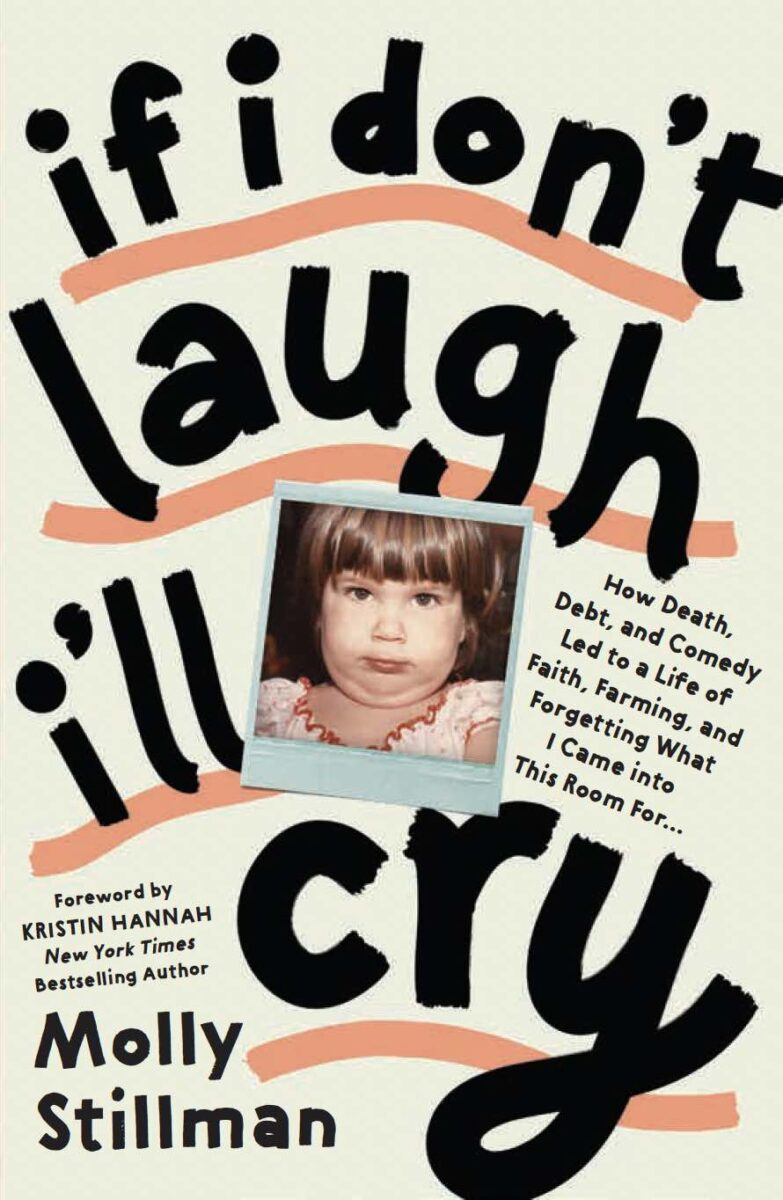Happiness is Fleeting, But Joy Lives Deep Within Our Souls: Molly Stillman & Jeanine Amapola
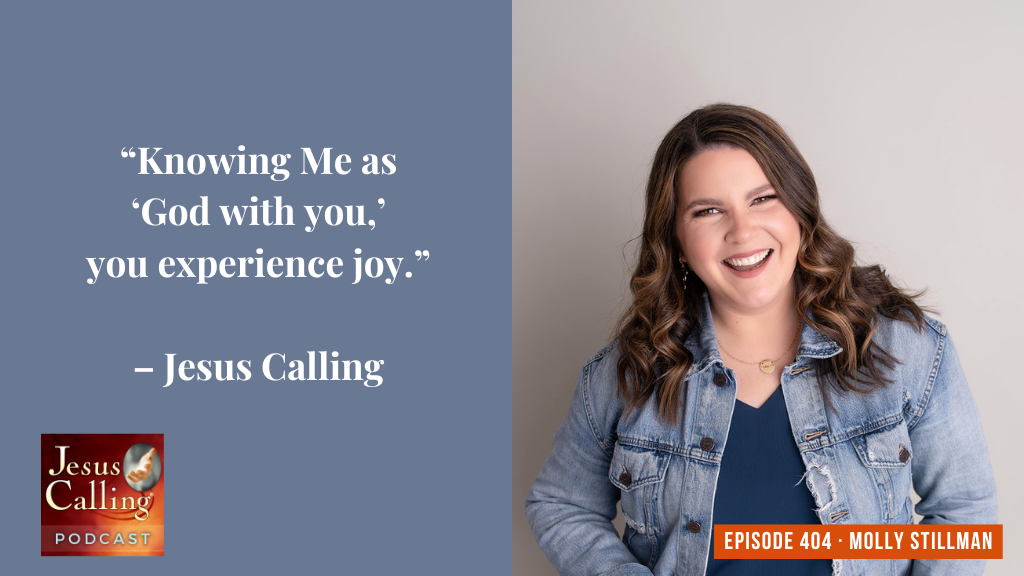
This episode contains content that may be triggering for some listeners.
Molly Stillman: Happiness is fleeting. Happiness is momentary. Happiness, in a lot of ways, is just circumstantial, whereas joy comes from deep within our souls.
Happiness is Fleeting, But Joy Lives Deep Within Our Souls: Molly Stillman & Jeanine Amapola – Episode #404
Narrator: Welcome to the Jesus Calling Podcast. Have you ever had a moment where you plastered on a smile, carried on through your day as if everything was perfectly okay, but really on the inside you were hurting? It’s okay to have sorrow, and it doesn’t mean we are cut off from joy in the midst of it. In the Psalms, David reminds us that God reveals joy during all the ups and downs of our lives. “You make known to me the path of life,” David prays, “in Your presence there is fullness of joy.” [Psalm 16:11]
Molly Stillman is an author, speaker, blogger, and podcast host who leans toward the brighter side of life and wants to bring that joy to others. The daughter of a nurse who served in Vietnam, Molly’s mother championed for the rights of women veterans all while battling alcoholism and addiction. Molly witnessed her mother’s powerful influence, despite her afflictions, and would come to know what it was like to hold both joy and grief in her heart as she navigated life after her mother’s death. Jeanine Amapola is a speaker and influencer who battled alcohol addiction and toxic relationships. At her lowest point, she wasn’t sure she’d ever feel joy again, but the healing began as she connected with a community of women who had experienced some of her same hardships.
Let’s begin with Molly’s story.
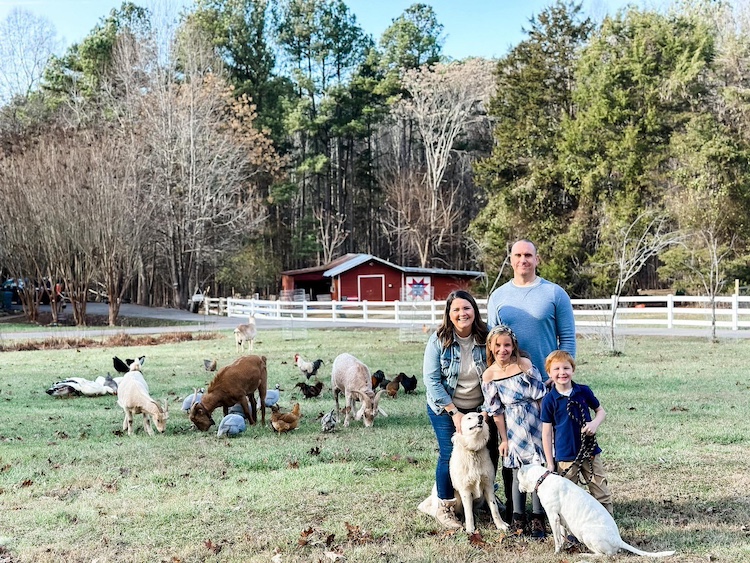
Molly Stillman: I’m Molly Stillman and I am a wife to John. We just celebrated twelve years of marriage. We have two kids here on earth, Lily and Amos, and we have two little boys in heaven named Elijah and Malachi. And we live on a small farm in Durham, North Carolina. I love to write, I love to create, and I’m just really grateful that I wake up every day and get to do what I get to do.
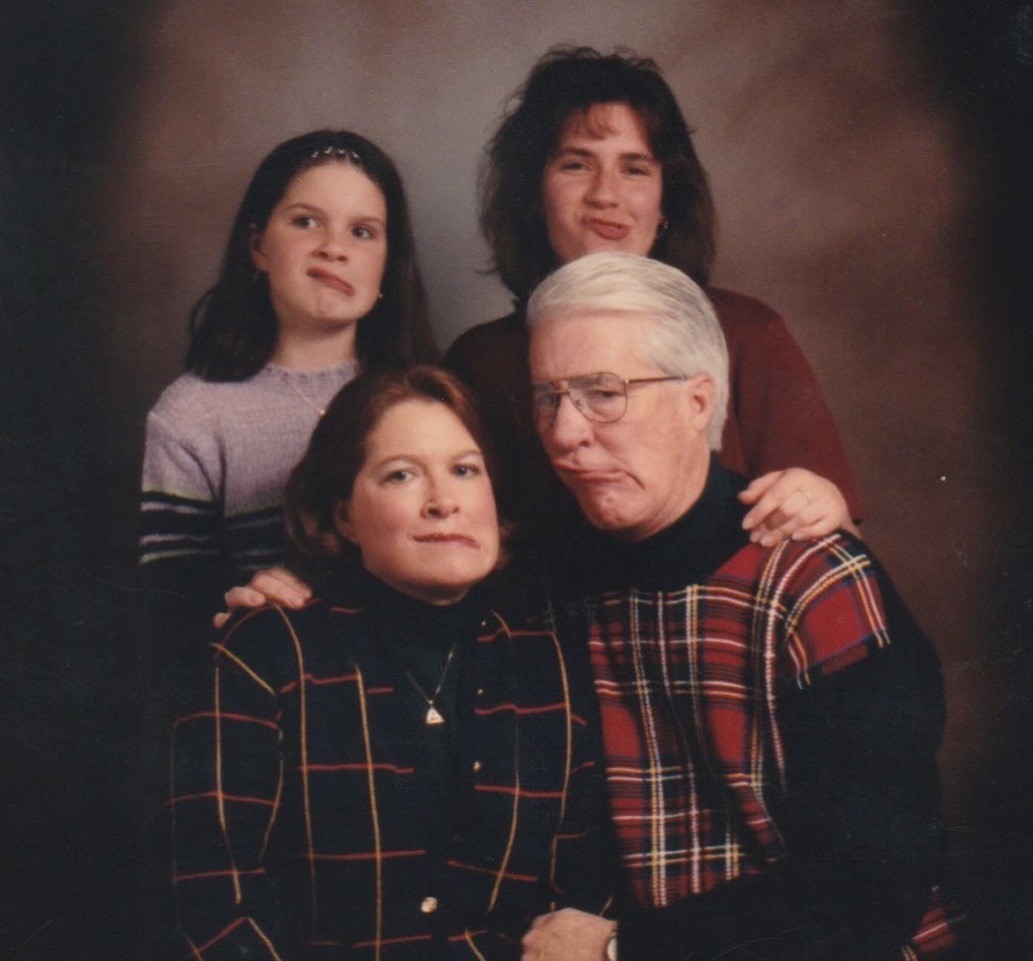
I am the daughter of two recovering alcoholic Irish Catholics. And so I like to say that my house had no shortage of laughter, loudness, or colorful language. And also, my mom was a Vietnam Veteran. That added to the loudness and colorful language for sure. My parents met later in life. My dad was forty when they got married, my mom was thirty-seven, and they were not their first marriages. The funny story is they actually met in AA, Alcoholics Anonymous, and they were hanging out with a group of friends, and they’re playing Trivial Pursuit. And basically, my dad did a bit that made my mom laugh so hard. And next thing they know, they went on a date to Harpers Ferry with my dad and his daughter from his previous marriage. And basically on that date, my dad knew that this was going to be his wife, and he proposed on the second date in a Jewish delicatessen, and they were married six weeks later. And so their love was a whirlwind.
My mom went to Catholic nursing school. She felt called to nursing at a pretty early age, and this was at the height of the Vietnam War. An Army recruiter came to my mom’s nursing school, and my mom was one of the first to stand up and say she’d enlist, and if those boys were over there being blown apart, she wanted to be there to put them back together. She enlisted in the Army, she went through basic training, and in June of 1969, she landed in Vietnam the same day that Sharon Ann Lane, the first army nurse—the first woman—to be killed in the war because of enemy fire, was killed. So basically, as my mom’s plane is landing, Sharon is killed. And that quickly sent a message that was counter to what they had heard, which was, “Oh, you’re not going to be in a combat zone. You’re totally safe there.” Rapidly, my mom’s colored glasses were ripped off and everything changed. And so she spent 1969 and 1970 in Vietnam and came home a vastly different person.
Home Before Morning, Her Mother’s Groundbreaking Book
She was dealing with PTSD (Post-Traumatic Stress Disorder), but there were certainly no tools or even a word for that at the time. And then eventually, she was steeped in alcoholism. She was having trouble sleeping and having trouble keeping a job.
In the late 1970s, early 1980s, she got connected with a guy who worked for the Vietnam Veterans Association, the VVA. And he basically brought her on board to be the director and the creator of the Vietnam Veterans of America Women’s Project to work with women veterans, because this was clearly an underserved group of veterans. And so my mom took charge of that, and she got invited to go back to Vietnam with politicians and some other veterans’ advocates, and things like that with the VVA in the early eighties.
And on that trip, she began to write about her experience. Her memoir was called Home Before Morning, and it was released in 1983. And it was the very first nonfiction account of the war from the perspective of a woman.
And at the same time, she got sober. She releases her memoir, she’s trying to heal. And in that healing process, very rapidly, the book became a bestseller. But it also became—like the war—incredibly divisive. And so you had this group of people who were like, “Yes, this was my experience. Linda’s telling the raw, honest truth.” And then you had a group of people who were like, “Absolutely not. You are painting us in a bad light. You’re making us all seem like drug addicts and alcoholics and cheaters, that we weren’t giving those boys the best care we could,” and all of that.
And so in these first few years of marriage, all of a sudden, she’s basically going almost bankrupt trying to defend her story, because her morals, her ethics, her values, her integrity, everything is being called into question, and she’s having to defend herself. And then she has a new baby and a new marriage. I just think about the fact, like, How did my parents survive? But they did.
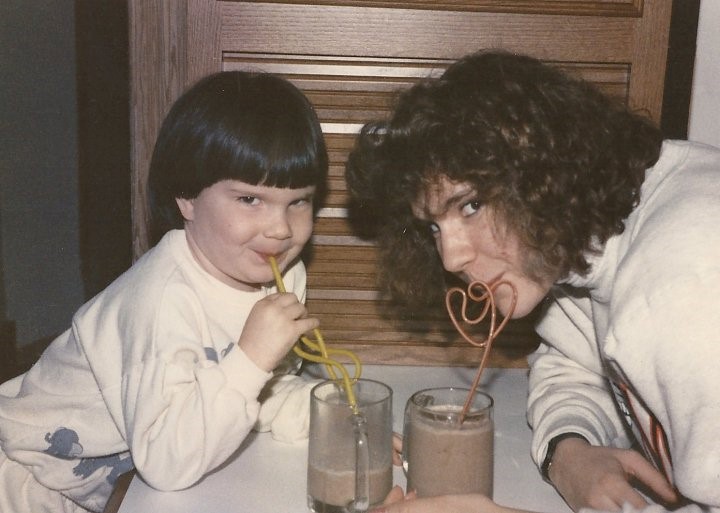
I was growing up during this time when I was watching her. She became a huge advocate for veterans and women veterans in general. She really paved a way for certainly her and other women as well—but a lot of veterans today say that women veterans have access to a lot of the things that they have access to because of the advocacy and trail that my mom blazed. And I got to be a front row witness to all of this. And I had no concept of really what the significance of it [was]. And then, our lives were flipped, turned upside down.
“A lot of veterans today say that women veterans have access to a lot of the things that they have access to because of the advocacy and trail that my mom blazed. And I got to be a front row witness to all of this.” – Molly Stillman
Molly Tries to Find Herself After the Loss of Her Mother
In the fall of 1994, my mom woke up one morning with a pulmonary edema, foaming at the mouth. Took her to the hospital, she is in ICU, she’s placed on a ventilator, and she’s fighting for her life. I was in the fourth grade. The doctors had no idea what was going on. And so she began to see specialist after specialist. We got sent to Johns Hopkins, the Mayo Clinic, the VA hospital, everywhere. So from November 1994 to March 1995, we’re visiting all these doctors trying to figure out what’s going on. And we get sent to this hospital out in Denver, Colorado, and she’s diagnosed with a rare collagen vascular autoimmune disease that only about four other people in the world have ever had anything similar to what she had.
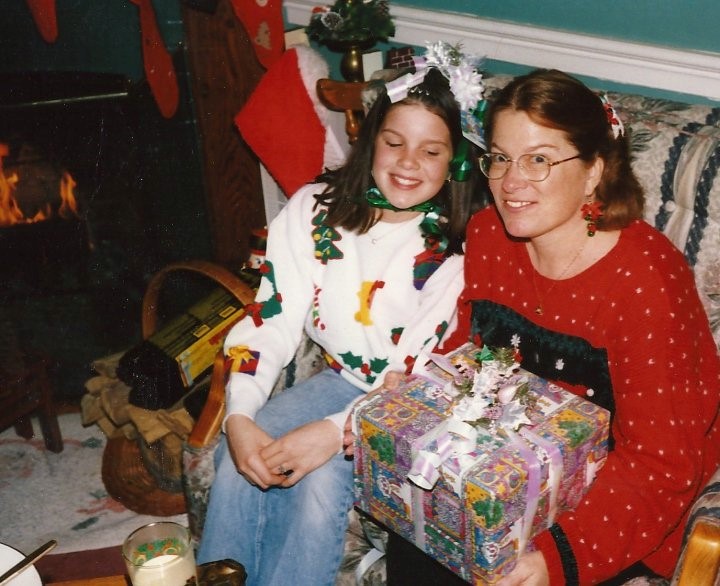
My parents did a very intentional job of shielding me from a lot of the realities of it. And she was essentially given two years to live. If anybody’s ever dealt with chronic illness or anybody in your life who’s a chronically ill person, especially when it comes to family, like if it’s your parent or your spouse or your child, it takes everything from you. We were 100,000 plus dollars in medical debt. My mom couldn’t work anymore. My mom’s family becomes estranged. And it really broke our hearts in so many ways. So it was just all of that, especially combined with a loss of sense of normalcy. Any time you are facing something like that, it’s just life-altering. I mean, it’s just everything, there’s no longer a “normal.”
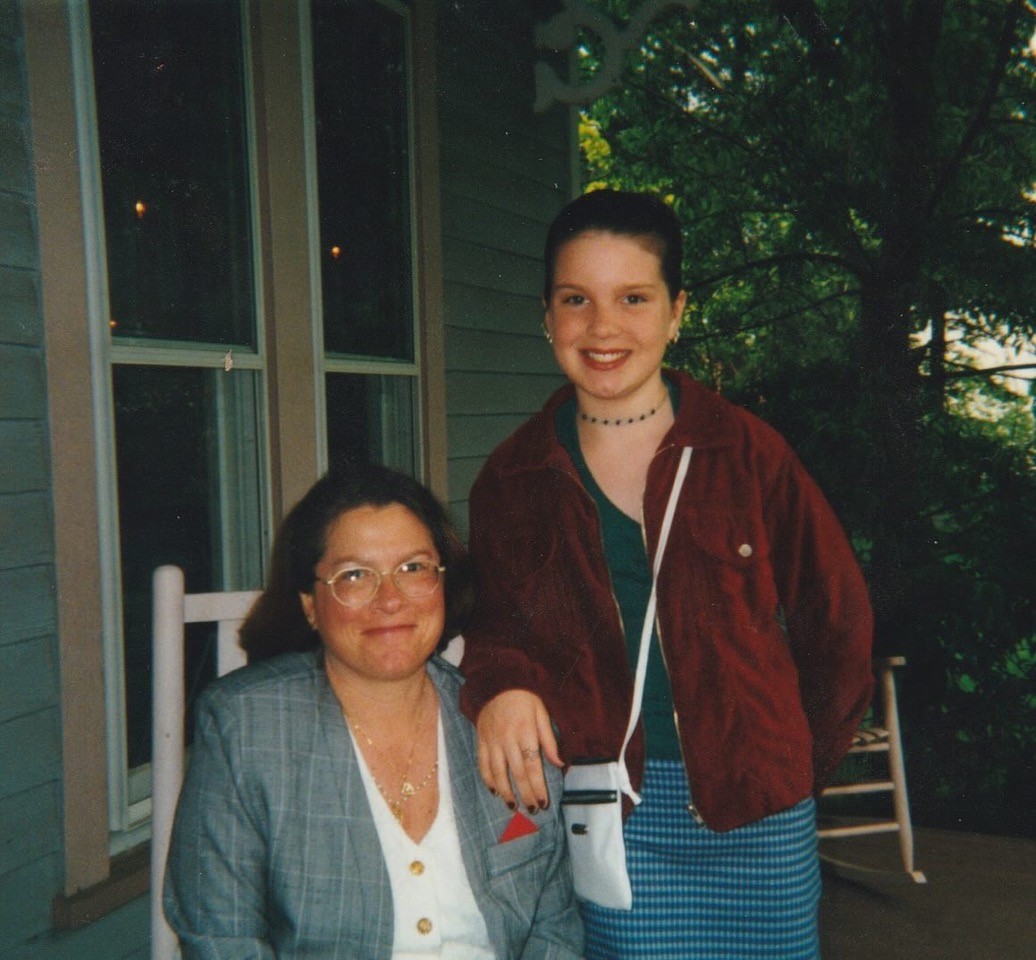
The doctors gave her two years, she got eight. And then, in the fall of 2002—I was a senior in high school—November 15th, 2002, my mom died suddenly in the middle of the night.
I wasn’t in church, I wasn’t walking with Jesus in any way, shape, or form, so I had no solid foundation on which to place anything in my life. And so everything I had built and was continuing to build, was just on very, very loose sand that had no firm foundation. At seventeen, you’re a selfish teenager. Think about how we all are at seventeen. I shut down because I didn’t have the tools to deal with this devastating loss.
“I wasn’t walking with Jesus in any way, shape, or form, so I had no solid foundation on which to place anything in my life. And so everything I had built and was continuing to build, was just on very, very loose sand that had no firm foundation.” – Molly Stillman
Almost immediately, I just began to fall into a pattern of poor choices, whether it was doing things I shouldn’t be doing, sneaking out or skipping class or going to parties. I got to a point where I was like, Well, it doesn’t matter. I just kind of stopped caring.
But then I went to college. When I went to college, that was my opportunity to reinvent myself. And I was like, These people, they don’t know me. They don’t know my story. They don’t know my family. This is Molly 2.0. This is my time to shine. And so I really just dove into a pattern of finding identity and security and comfort and self-worth in titles and success and my grades.
My senior year of college, on my twenty-first birthday, I received in the mail a paper check—which is just really funny to me for some reason that it was a paper check—for nearly a quarter of a million dollars. Nobody had told me that there was a trust that had been set up by my grandfather, and that trust was essentially like once the last living grandparent died [I would receive an inheritance.]
I’m emotionally unstable and immature, and so what happens? I do like to joke and give myself some credit that I did start a scholarship at my university in my mom’s name. And then I gave some to my dad, and I gave some to my sister, but then the rest beyond that—I’m not thinking about my 401K or retirement, like, I’m twenty-one. So I went on a series of just wildly irresponsible financial decisions. And less than two years later, by June of 2008, not only had I spent every last dime, I was over $36,000 in consumer credit card debt.
On the outside, I looked fantastic. I looked fantastic. I had put up this facade. I had created this image of myself where everybody just thought, She’s great. She’s living a great life. She’s living the dream. It was such a sham.
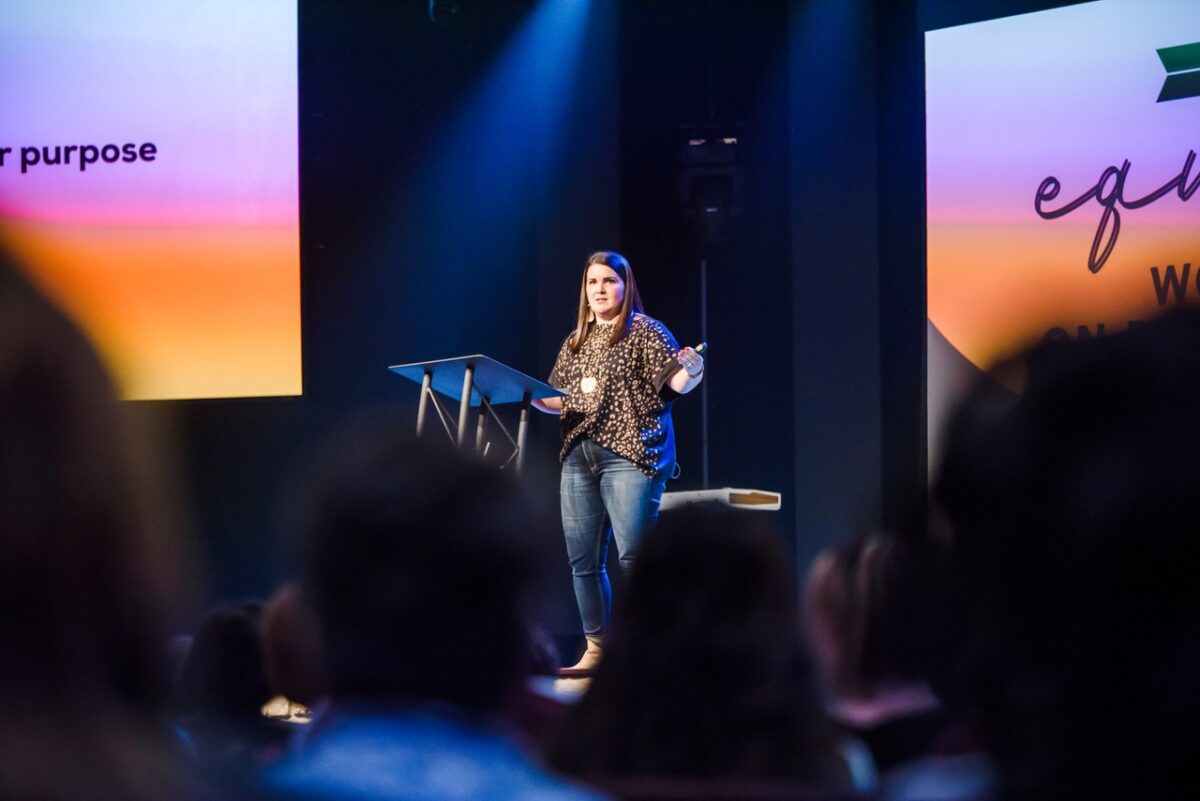
For so long, I’d been using humor as a coping mechanism. I’ve been using this success as a coping mechanism. I thought I had made it, like, I had graduated college, I had gotten a great job. And then I’m taking comedy classes in New York City, in Chicago, and I’m performing all over the country. And so I’m moving in the direction of what I wanted.
And the shame and the embarrassment, the guilt, that washed over me felt like I had a ton of bricks on my chest and my shoulders. It was devastating to find myself in this position and to just feel that level of condemnation towards myself. And so I got to this point where I would lie in bed at night, and I was contemplating how I was going to take my life because that was the only way I was going to get out of this mess that I had gotten myself into.
“The shame and the embarrassment, the guilt, that washed over me felt like I had a ton of bricks on my chest and my shoulders. It was devastating to find myself in this position and to just feel that level of condemnation towards myself.” – Molly Stillman
Surrendering Control and Embracing Hope
Eventually, I started hanging out all the time with this guy—spoiler alert, who’s now my husband—who was a Christian, and I like to joke and say it was just that “je ne sais quoi” about him. He was really confident in who he was and who God created him to be. And he had this self-assuredness and this steadfastness. And I was without hope. And so I finally just said, “Can I go to church with you?” And he’s like, “Yeah.” And, so I walked through the doors of a church and I heard that there was a God in heaven who created me on purpose, with a purpose, for a purpose, that He loved me just as I am, that He’d forgiven me of the mistakes that I made, and that there was hope to be found in Him. And so I walked out of those doors that day with hope. And that is a powerful, powerful thing when you are hopeless.
“I walked through the doors of a church and I heard that there was a God in heaven who created me on purpose, with a purpose, for a purpose, that He loved me just as I am, that He’d forgiven me of the mistakes that I made, and that there was hope to be found in Him. And so I walked out of those doors that day with hope. And that is a powerful, powerful thing when you are hopeless.” – Molly Stillman
It takes a really significant level of surrender to be able to relinquish that level of control and introducing self-forgiveness into our own lives. The Christian walk in general, like, from the time I became a Christian, it wasn’t like I had this light bulb moment. It’s a slow process.
Very early on in my walk with God, I read Jesus Calling. And I don’t remember exactly when, but just in my early, baby years as a Christian, and it just really revolutionized as far as getting me in a habit of walking with God daily and spending time with Him, even if I didn’t know really necessarily what that looked like or what to do.
I’m still a work in progress, there are still a lot of areas that I have to get to. But I think God has been so good and so kind and so sweet to just hold my hand through this process and pick me up.
People that say that God doesn’t have a sense of humor clearly don’t read the same Bible I do, or have the same relationship with God that I do. There’s research out there that shows that children laugh up to 300 times a day. 300 times a day that kids are laughing. The average adult laughs seventeen times a day. And so there’s something to it there—this is biblical: Proverbs 17:22, “Laughter does the heart good, like medicine.”
“People that say that God doesn’t have a sense of humor clearly don’t read the same Bible I do, or have the same relationship with God that I do.” – Molly Stillman
When we really see Him for the funny, hilarious, amazing, almighty, powerful, and righteous and holy God that He is, that is where life transformation happens. It’s not in the work that we do, but in the work that He does.
Narrator: To learn more about Molly, visit www.stillbeingmolly.com, and also check out her new book, If I Don’t Laugh, I’ll Cry, wherever you buy books.
Stay tuned to Jeanine Amapola’s story after a brief message.
Inspiration At Your Fingertips

Find inspiration as close as your mobile device with the Jesus Calling App. Available on both Android and Apple, the Jesus Calling app is packed with digital and audio features that make this daily devotional more accessible than ever.
Users can read Jesus Calling and other Sarah Young devotions—such as Jesus Listens or the new Living Hope devotional, which is available only inside the Jesus Calling app. And users can listen to the Jesus Calling podcast, read the latest blogs and magazine articles—all from one centralized location on their phone.
Get started today for free. Look for the Jesus Calling app in the Apple Store or the Google Play Store.
Our next guest is Christian content creator Jeanine Amapola. Jeanine faced a crisis of identity as she left college and began her life as an adult, desperately seeking for something to give her life meaning. After struggling with addiction and poor choices in relationships, Jeanine reached a point where the shame and sorrow weighed heavy, and she turned for help to a caring community of friends.
Jeanine Amapola: Hi everyone, my name is Jeanine Amapola Ward. I am a Christian content creator, podcaster, author, speaker, and I have been in social media for literally thirteen years. I’ve done this since I was seventeen years old and I make faith, fashion, and lifestyle content.
Looking for Meaning in all the Wrong Places

So about seven, eight years ago was probably the hardest time of my life. It was when I was struggling so much with a lack of identity. I found myself floating around and just looking for affirmation in all the wrong places. And because I had such a severe, severe disdain for myself and a low self-worth, I went to all these other places to try and find confidence and identity and worth and value.
“I found myself floating around and just looking for affirmation in all the wrong places. And because I had such a severe, severe disdain for myself and a low self-worth, I went to all these other places to try and find confidence and identity and worth and value.” – Jeanine Amapola
And around this time in college and a little bit of post-college, I just consistently was at the bars and making decisions that I did not need to make. And I was just trying to find hope and value in men and affirmation on the dating apps, and I was kind of jumping from guy to guy or maybe going to new dates or just really looking for love in all the wrong places. And I mean, of course, to my surprise, it left me short and it left me feeling empty and worthless.
On the outside, you would have thought I was happy, you would have thought I was thriving because I was doing social media at the time, and I was posting YouTube videos. I did all the things that you could do in L.A. I was at the parties and I was doing commercials and shoots, and I thought I was chasing happiness. I was actually creating a life of regret.
I had this perfect act on the outside for the internet, for my family, for friends. But inside of me, I just knew something was missing. I was living in a three story house with two content creators, and I was in just this kind of dingy basement. I just remember feeling so desperate and so alone. I think for such a long time, I was living such a life of shame and secrecy because I was just embarrassed. I was embarrassed for people to find out what I was doing or the bad decisions I was making.
And I just remember feeling, Man, there’s got to be more. I’m not happy. I’m trying to connect with God. I keep going back to my old ways. I keep making bad decisions. I hate my body. I don’t like myself. And I remember asking God, “God, I need community, I need friendship, and if you’re not going to bring it to me, I’m going to go and try to find this myself.”
“I just remember feeling, Man, there’s got to be more. I’m not happy. I’m trying to connect with God. I keep going back to my old ways. I keep making bad decisions. I hate my body. I don’t like myself.” – Jeanine Amapola
And so I was right about to text an entire group of just random girls and be like, “Hey, does anyone want to do a Bible study?” I don’t even think I was qualified to start a Bible study. I didn’t even know my Bible at all, but I was so desperate for community and people that poured into me that I was willing to start that.
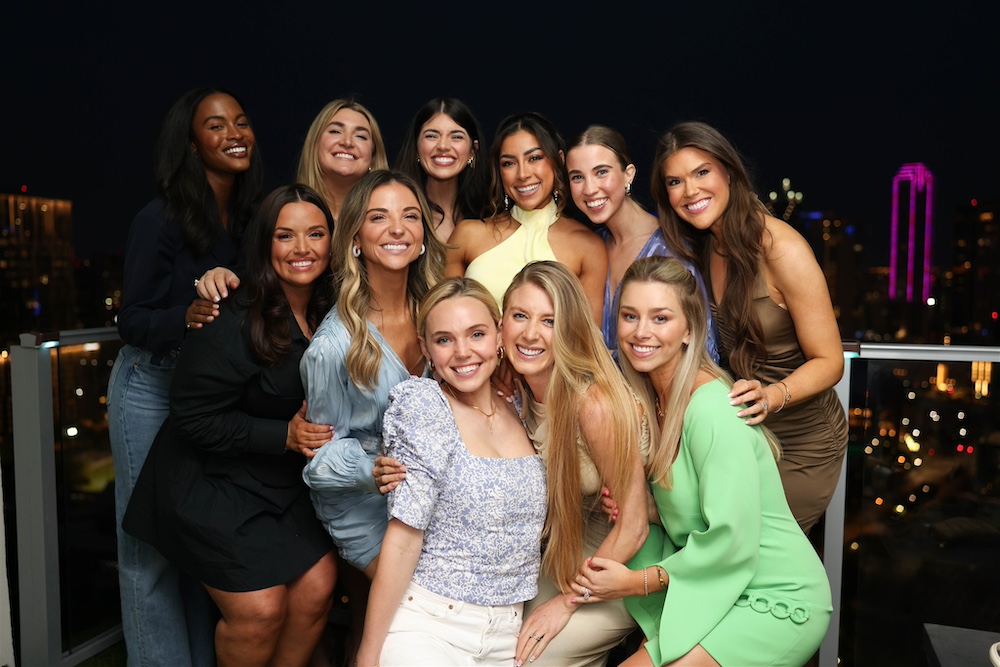
And I suddenly found myself in this small group that a girl invited me to out of the blue. It was such a God thing, such a pure accident. But she invited me to this Bible study, and I showed up, and I just felt like I met the Lord there. There were about fifteen girls at the time. There was a mentor, her name was Casey. She was pouring into all the girls and was just asking us tough questions. And she was reading the Bible and she was literally breaking down scripture to me. I mean, things I had heard my whole life suddenly made so much sense.
I will tell you, that day marked my life. It changed my life. I never had someone so lovingly, but powerfully and boldly call me out in truth. And from that day forward, I said, “I’m going to make a change.”
Healing Can Be Found in Relationship
After that, true healing began, because all of a sudden I was actually being vulnerable. I was actually being honest. I continued to go to this Bible study every single Tuesday, and next thing I knew, I was starting to create community with these girls. And also these girls were going through the same things that I was going through, and so I felt less alone. We would hang out with each other, we would go to church together, we would do life with each other. And I just was like, This is what I have been missing. And I just started to see my life drastically thrive in the best way possible, and it’s really, truly the power of community and what it can do in your life.
The Hallmarks of Healthy Relationship
The Bible says in Ecclesiastes 4:9 that two are better than one. And we are in a society that is very “me” focused. God did not design us to be alone. He literally says, “It is not good for man to be alone,” and so we should pay attention to that. If God says that, then why are we surprised when we’re alone, and all of a sudden we’re facing all this insecurity and anxiety and depression and doubt and all these lies, and we’re feeling lackluster and lukewarm in our faith? Why are we surprised?
“God did not design us to be alone. He literally says, ‘It is not good for man to be alone,’ and so we should pay attention to that. If God says that, then why are we surprised when we’re alone, and all of a sudden we’re facing all this insecurity and anxiety and depression and doubt and all these lies, and we’re feeling lackluster and lukewarm in our faith? Why are we surprised?” – Jeanine Amapola
And so when you have someone come in to link arms with you, it is going to be the most game-changing thing because sometimes you don’t have the strength. You don’t have the courage to pick up your face. You don’t have the strength to open your Bible, to avenge for yourself, to fight on your behalf. That is where community comes in. And the Bible calls us sheep in the Bible because sheep usually go together in a little flock. We all go together, we run together, we walk together. And so it’s important that we stay in that flock, because when the one sheep goes by himself, he is more susceptible to temptation, to suffering, to struggling, to being alone, to letting the enemy win over him.
1. Honesty
I do think that the first thing that is going to really build a deep, healthy friendship is honesty. And so I think to maintain that you want to have a friend that you can be honest with and that’s honest with you, they will tell you the truth even when you don’t want to hear it, even if it’s not pretty. But those are the friends that know and realize that iron sharpens iron. And so this friend is trying to make you better. They’re not trying to suppress you. They’re not trying to keep you down. But they realize the potential and where God’s calling you to be. And they call you higher.
2. Consistency
I would say consistency, you know, it’s not helpful to have friends that only check up on you once a month, every other month, every other week. I think having those regular check-ins is important. I think it could be voice memos, it could be daily text, it could be FaceTimes, it could be coffee dates, finding whatever works for your rhythm. I will say for me, all of my best friends are long distance, which is a little difficult, but we continually find ways to make time for each other so we prioritize each other.
3. Accountability
Also accountability, because I think a lot of times people just want to have a friend because it feels good. And you’re like, Yay, I have a friend. This is fun. But accountability is really what calls you higher. You’re letting that friend know, “You have the authority, I’m giving you access to speak into my life. If you see sin in me, if you see me sliding backwards, if you see me going back to an ex or an old bad pattern, an old bad way, you were allowed to hold me accountable. You were allowed to challenge me, to call me higher.”
4. Vulnerability
Vulnerability. Without vulnerability, there’s not really a true friendship. If you don’t feel like you can actually be yourself, you can actually share what’s going on, the things you’re struggling with, the things in your past, there’s really not a true friendship there. And so I do think vulnerability means a lot. It’s a good foundation for your friendship, and your friend should feel safe to tell you also what they’re going through to where you’re not going to share that with somebody else. It causes us to feel seen, to know someone deeper, to be fully known.
Good Friends Have Good Friends
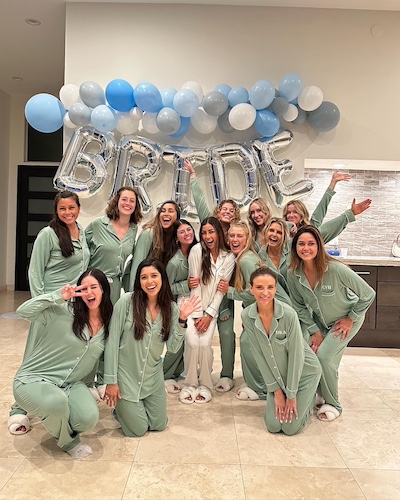
If you’re wanting to have a good friend, you should also be a good friend.
I think it’s important to surround yourself with people that inspire you, that are also places that you want to be, that are going to live life in such a way that you’re like, Wow, that motivates me to want to look more like Jesus. And so I think those are some awesome things that you can take note of and look at yourself too and say, Okay, am I a reliable friend? Am I a trustworthy friend? Am I an intentional friend? Am I also a godly, honest, encouraging friend?
“If you’re wanting to have a good friend, you should also be a good friend. I think it’s important to surround yourself with people that inspire you, that are also places that you want to be, that are going to live life in such a way that you’re like, Wow, that motivates me to want to look more like Jesus.” – Jeanine Amapola
It’s a friend sitting with you in the non-Instagrammable moments where you’re not taking pictures and it’s not all filtered and pretty and perfect, but it is also the friend that does daily life with you. You guys are going to coffee shops, you’re seeing movies together, you’re going on walks, you’re sharing your heartfelt needs, you’re reading the Bible together. So it’s friends in high and low seasons.
I’m texting them. I’m checking up on them. They’re checking up on me. We fill each other in on the hard moments and the high moments and the low moments. I have friends always pouring into me, always asking me questions, always praying for me.
Jesus Listens, November 22nd:
Faithful God,
I’ve learned that thankfulness and trust are like close friends who are always ready to help me. I need to rely on these faithful friends at all times, but especially when my day looks bleak or the world seems scary. Lord, You’re teaching me to stop during these times and look around me—searching for beauty and blessings. When I thank You for what I find, I connect with You in a wonderful way. It blesses me to speak to You in glowing terms about the many good gifts You provide—making the effort to thank You enthusiastically, regardless of how I feel. If I persist in expressing my gratitude to You, my mood becomes brighter and lighter.
You are absolutely trustworthy! Voicing my trust in You reminds me that You are with me, taking care of me. I know there are areas of my life where I need to trust You more fully. When hard times come, help me view them as opportunities to expand the scope of my trust—living by faith in these challenging situations. Instead of wasting these opportunities, I want to use them to come closer to You. I rejoice that You welcome me warmly—with open arms!
In Your compassionate Name, Jesus,
Amen
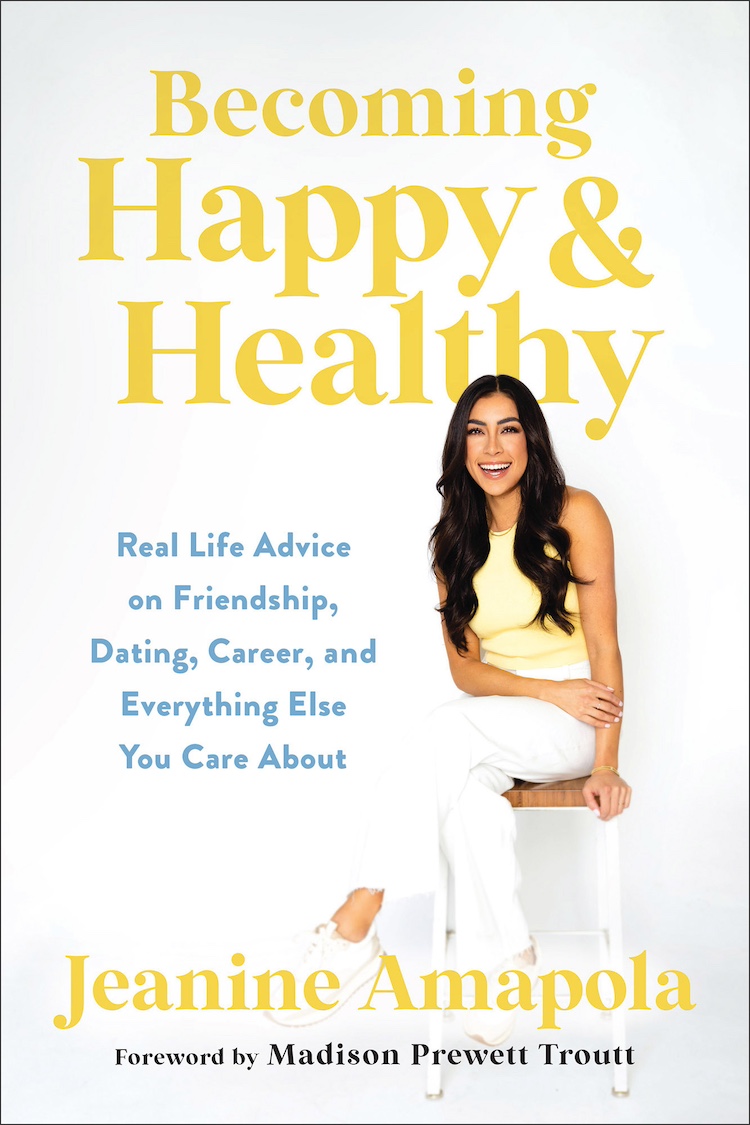
Narrator: To learn more about Jeanine, follow her on social media, and be sure to check out her new book, Becoming Happy and Healthy, at your favorite retailer.
If you’d like to hear more stories about our true source of joy, check out our interview with Jen Lilley.
Next week: Andre Ward

Next time on the Jesus Calling Podcast, we’ll hear from world champion boxer Andre Ward, who shares his story and how he believes God cares about all the little and big things in our lives.
Andre Ward: I’ve actually had people tell me that, “There’s no way God’s involved with boxing. He doesn’t care about that stuff.” And I’m like, “Well, if we’re made after His image and His likeness and I care about everything that my kids do, no matter how foolish it may seem, I would venture to believe that He cares about this, too.”
